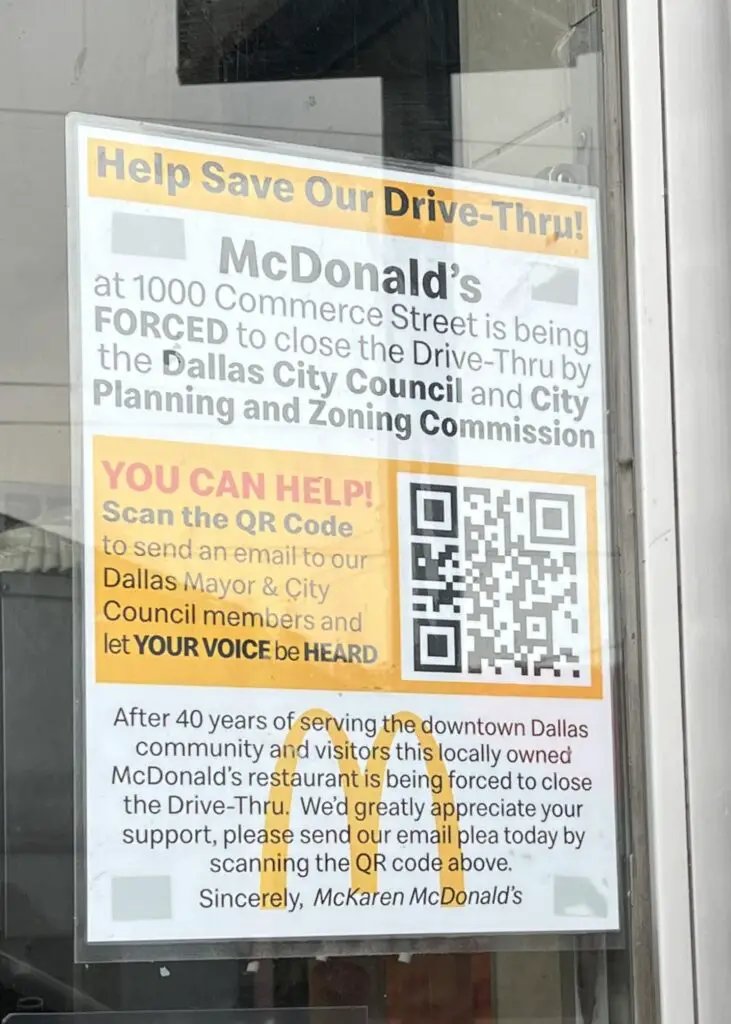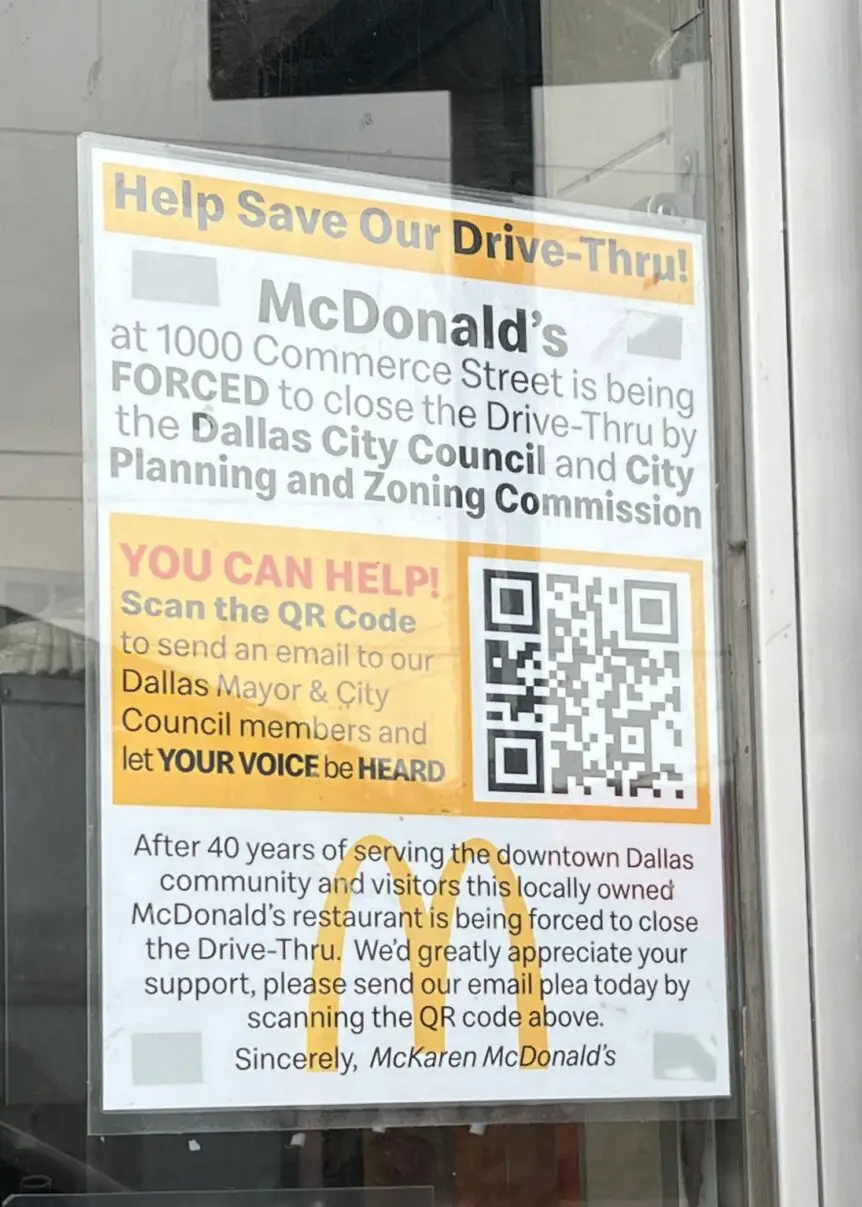Dallas, Texas – A Dallas McDonald’s restaurant recently put up a sign that claimed its drive-thru was being forced to close by the city council and planning and zoning commission. The sign was seen in the window of the Dallas located at 1000 Commerce Street. This particular restaurant has been located in the city for over 40 years and is one of the oldest in Texas.
The sign read as follows: ‘Help save our drive-thru! Mcdonald’s is being forced to close the drive-thru by the Dallas City Council and City Planning and Zoning Commission. After 40 years of serving the downtown Dallas community and visitors, this locally-owned McDonald’s restaurant is being forced to close the drive-thru. We’d greatly appreciate your support please send our email plea today by scanning the QR code above.’

Why Dallas City Council are trying to remove the drive-thru
The context of this poster is that drive-thru restaurants in Dallas require a special use permit granted by the City Council. Although initially issued alongside construction approval, these permits are not perpetual. Typically, they are valid for a period of twenty years, acknowledging the substantial financial investment associated with such development. Indeed, an investment of $4 million in a restaurant would hardly be justifiable if its potential operation could be truncated before recouping costs.
This establishment has undergone multiple renewals of its special use permit and has demonstrably maintained the property through interior and exterior upgrades. However, upon the permit’s current expiration, the Dallas City Council has declined to grant further renewal. The city’s stated goal is to encourage the development of a different, potentially more aesthetically pleasing, project on the site.
The City Council maintains its right to make such determinations as part of its responsibility to ensure the optimal utilization of land within its jurisdiction. In their view, this denial fosters higher and better use of the property. Conversely, the McDonald’s franchise owner argues that the city’s decision arbitrarily infringes upon the livelihood of a legally operating business.
This situation illustrates the potential tension between established businesses and evolving municipal goals. While the City Council’s pursuit of higher and better land use is understandable, the impact on the McDonald’s franchise and its employees deserves due consideration. The future of this restaurant remains uncertain as both parties navigate the legal and economic ramifications of the City Council’s decision.

